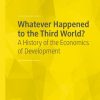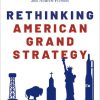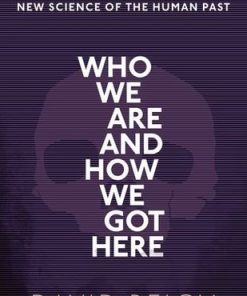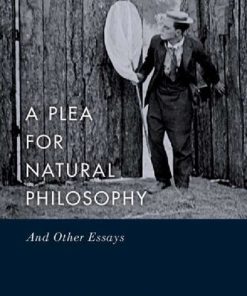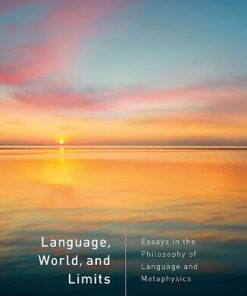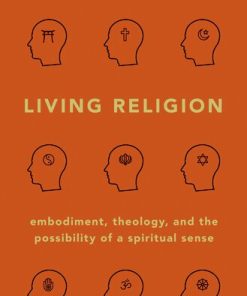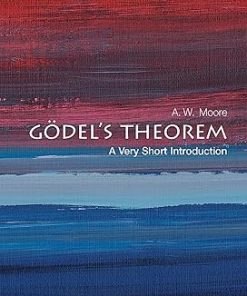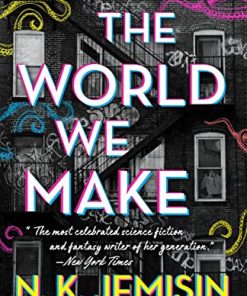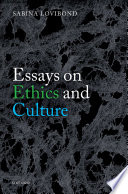(EBook PDF) The Human A Priori Essays on How We Make Sense in Philosophy, Ethics, and Mathematics 1st edition by Moore 0192699210 9780192699213 full chapters
$50.00 Original price was: $50.00.$25.00Current price is: $25.00.
The Human A Priori: Essays on How We Make Sense in Philosophy, Ethics, and Mathematics 1st edition by A. W. Moore – Ebook PDF Instant Download/DeliveryISBN: 0192699210, 9780192699213
Full download The Human A Priori: Essays on How We Make Sense in Philosophy, Ethics, and Mathematics 1st edition after payment
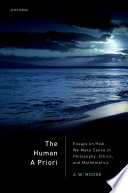
Product details:
ISBN-10 : 0192699210
ISBN-13 : 9780192699213
Author: A. W. Moore
The Human A Priori is a collection of essays by A.W. Moore, one of them previously unpublished and the rest all revised. These essays are all concerned, more or less directly, with something ineliminably anthropocentric in our systematic pursuit of a priori sense-making. Part I deals with the nature, scope, and limits of a priori sense-making in general. Parts II, III, and IV deal with what are often thought to be the three great exemplars of the systematic pursuit of such sense-making: philosophy in the case of Part II, ethics in the case of Part III, and mathematics in the case of Part IV. Much of the attention throughout is devoted to the work of other philosophers: Kant and Wittgenstein feature prominently, and five of the essays take the form of reviews or critical notices of recent work in philosophy. But the interest in never purely exegetical. One of the lessons that emerges from the essays, either in opposition to the views of these other philosophers or by invocation of their views, is that we humans achieve nothing of real significance in philosophy, ethics, or mathematics except from a human point of view, and hence that all three of these pursuits can be said to betoken what may reasonably be called ‘the human a priori’.
The Human A Priori: Essays on How We Make Sense in Philosophy, Ethics, and Mathematics 1st Table of contents:
1. Part I: The Nature, Scope, and Limits of A Priori Sense-Making
2. Part II: How We Make Sense in Philosophy
3. Part III: How We Make Sense in Ethics
4. Part IV: How We Make Sense in Mathematics
Part I. The Nature, Scope, and Limits of a Priori Sense-Making
1. Armchair Knowledge: Some Kantian Reflections
1. A Kantian View of Armchair Knowledge
2. The Distinction between Analytic Armchair Knowledge and Synthetic Armchair Knowledge, and Two Associated Questions
3. Invoking Transcendental Idealism to Account for Analytic Armchair Knowledge
4. Invoking Transcendental Idealism to Account for Synthetic Armchair Knowledge
5. The Incoherence of Transcendental Idealism
6. A Priori Intuitions and Pure Concepts
7. Accounting for Armchair Knowledge without Invoking Transcendental Idealism
2. On the Necessity of the Categorieswritten jointly with Anil Gomes and Andrew Stephenson
1. Introduction
2. Sensibility and Undecidability
3. The Understanding
4. Against Contingency
5. Textual Considerations
6. Systematic Considerations
7. Second-Order Undecidability
8. Luminosity and Neutrality
3. What Descartes Ought to have Thought about Modality
The First Concern
Reply to the First Concern
The Second Concern
Reply to the Second Concern
The Third Concern
Reply to the Third Concern
The Fourth Concern
Reply to the Fourth Concern
Postscript for the Reprint
4. Varieties of Sense-Making
1. The New Atheism and the Naturalism that Underlies it
2. Against Such Naturalism
3. The Non-Hermetic Character of a Theistic Way of Making Sense of Things
4. Theism and the Problem of Suffering
Part II. How We Make Sense In Philosophy
5. Sense-Making from a Human Point of View
1. The Artistic Conception of Philosophy
2. The Distinction between Analytic Philosophy and Continental Philosophy: A Problem for the Artistic Conception
3. Thinking beyond the Human in Philosophy
4. Spinoza: A Case Study
6. Not to be Taken at Face Value
7. Carving at the Joints
8. The Concern with Truth, Sense, et al.—Androcentric or Anthropocentric?
1. Introduction
2. How I View the Dualities
3. Anderson’s Critique
4. Philosophy as Anthropocentric (But Not as Androcentric)
Part III. How We Make Sense in Ethics
9. A Kantian View of Moral Luck
1. Kant, Aristotle, and their Differing Views Concerning Luck
2. The Possibility of Bad Moral Luck on a Kantian View
3. Consequences of the Kantian View
10. On There Being Nothing Else to Think, or Want, or Do
1. The Idea in Wiggins of There Being Nothing Else to Think
2. Counterparts of Wiggins’s Idea for Volition and Agency
3. Explaining the Value of the True, the Right, and the Categorically Required
11. Conative Transcendental Arguments and the Question Whether There Can Be External Reasons
1. Transcendental Arguments
2. Conative Transcendental Arguments
3. Good Conative Transcendental Arguments
4. Why Good Conative Transcendental Arguments Can Never Be of Practical Use
5. Why Good Conative Transcendental Arguments May Be of Use in Dissolving Certain Applications of the Debate about Whether There Can Be External Reasons
6. Are There Any Good Conative Transcendental Arguments?
12. Maxims and Thick Ethical Concepts
1. Kant’s Notion of a Maxim
2. How Are Principles to be Distinguished from Other Resolutions?
3. Williams’s Notion of a Thick Ethical Concept, and a Basic Proposition Concerning it
4. Using the Notion of a Thick Ethical Concept to Distinguish Principles from Other Resolutions
5. Relating the Discussion Back to Kant
13. Quasi-Realism and Relativism
1. Introduction
2. Relativism as a Metaphysical View
3. Ramsey’s Ladder
4. One Way for Blackburn Not to Try to Distance Himself from Relativism
5. Ethical Quasi-Realism Compared with Modal Quasi-Realism
14. From a Point of View
15. Williams, Nietzsche, and the Meaninglessness of Immortality
1. Williams
2. Nietzsche
Part IV. How We Make Sense in Mathematics
16. On the Right Track
1. Introduction
2. Platonism and Cartesianism
3. Skolemite Scepticism
4. Ground-Level Mathematical Scepticism
5. Radical Scepticism and Grammar
6. Mathematical Practice and Grammar
7. Limits of Explanation
8. Private Language
9. Conclusion
17. Wittgenstein and Infinity
1. Descartes’s and Nagel’s Realist Model
2. Wittgenstein’s Rejection of the Realist Model
3. Wittgenstein’s Quasi-Aristotelianism
4. The Enticement of a Realist Model of the Grammar of the Infinite
5. Wittgenstein’s Attempt to Give a Finite Account of the Grammar of the Infinite, and his Consequent Struggle to Maintain his Grip on the Grammar
6. Some General Issues about Grammar
18. Wittgenstein’s Later Philosophy of Mathematics
1. Introduction
2. Wittgenstein’s Precept that Philosophy Leaves Everything (Including Mathematics) as it is, and his Distinction between Calculus and Prose
3. Concerns about the Distinction between Calculus and Prose
4. One Way to Meet These Concerns
5. Renewed Concerns about the Distinction between Calculus and Prose
6. An Issue about the Application of Mathematics
19. A Problem for Intuitionism: The Apparent Possibility of Performing Infinitely Many Tasks in a Finite Time
1. A Route from Some Non-Intuitionistic Premises to Some Intuitionistic Conclusions
2. Strict Finitism
3. The Problem for the Intuitionist
4. One Way in which the Intuitionist Cannot Address the Problem
5. Others Who Face the Problem
6. One Way in which Some Others Can Address the Problem But the Intuitionist (Once Again) Cannot
7. The Grammar of ‘Infinity’
8. A Related Problem for the Intuitionist, and a Related Solution
9. Conclusion
20. More on ‘The Philosophical Significance of Gödel’s Theorem’
1. The Idea that Meaning is Use and the Threat Posed to it by Gödel’s Theorem
2. Annulling the Threat
3. An Additional Complication Concerning Consistency
4. Dummett’s Concept of Indefinite Extensibility and its Relevance to Gödel’s Theorem
5. The Bearing of Wittgenstein’s Ideas on Gödel’s Theorem, and its Bearing on them
People also search for The Human A Priori: Essays on How We Make Sense in Philosophy, Ethics, and Mathematics 1st:
a priori hume
a priori psychology
a priori philosophy
a priori philosophy definition
a priori ethics
Tags:
The Human,Priori,Essays,Make Sense,Philosophy,Ethics,Mathematics,Moore
You may also like…
Biology and other natural sciences
Who We Are and How We Got Here: Ancient DNA and the new science of the human past David Reich
Politics & Philosophy - Philosophical Positions & Movements
A Plea for Natural Philosophy: And Other Essays Penelope Maddy
Politics & Philosophy - Anthropology
Politics & Philosophy - Social Sciences
Politics & Philosophy - Anthropology
Living Religion: Embodiment, Theology, and the Possibility of a Spiritual Sense 1st Edition
Mathematics - Others
Science Fiction - Other Sci-Fi
The World We Make: A Novel (The Great Cities #2) N. K. Jemisin
Mathematics - Mathematical Theory
Politics & Philosophy - General & Miscellaneous Philosophy


